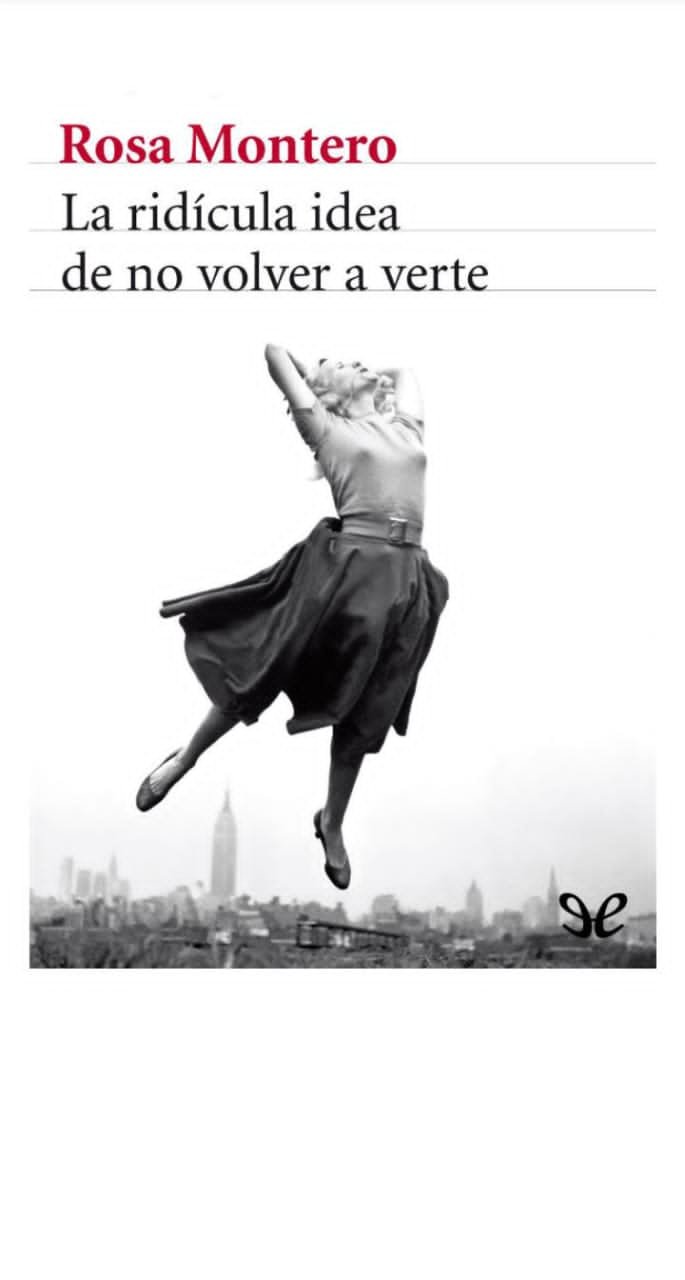RE: Books and life competition. Edition 2
You are viewing a single comment's thread:
A few months ago, this same year I went through a situation that affected me a lot, two friends died within 3 days of each other. I am a nurse and I had to take care of both of them in their last days, after their deaths I did not imagine how difficult it would be to continue my routine after losing them. It was scary, I felt so fragile and at the same time I felt guilty because I couldn't do anything to save them.
I was looking for books to cope with the losses and I found one with the title "La ridícula idea de no volver a verte" (The Ridiculous Idea of Never Seeing You Again). The book is by the author Rosa Montero published in 2013, this book won the Madrid critics award in that year.
In this book Rosa makes a comparison of what Marie Curie, Polish physicist and chemist, lived through when her husband died in an accident with the grief of her who lost her husband when she fought with a very strong cancer.
There is a paragraph that stayed in my memory, and helped me to respect my times and my emotions.
It happened to me that I took my grief as an illness that had to be cured as soon as possible. I think this is a common mistake, because in our society death is seen as an anomaly and bereavement as a pathology: "We constantly talk about avoidable deaths, as if death could be prevented rather than postponed".
Rosa was married to her husband for 21 years and although the fight against cancer was arduous, her husband didn't make it, but the pain she felt so strong turned him into art, since her book can make those of us who have gone through grief feel that it is normal to feel bad, that it is normal to relapse and cry for no apparent reason, although in these cases there are plenty of reasons.
And after reading about these great women who were not afraid to express what they felt, I can proudly say that although we see death very closely, there is something that it cannot take away from us, the pure and wonderful love that we had the privilege of feeling and we will continue to feel it even though our loved one is no longer here.
Here is another interesting and very true paragraph from the book
The loss of a loved one is such a crazy and senseless experience that it is incredible how much a VISA card with the name of your dead person written in relief can disturb and move you.

Commentary written in Spanish translated by Deepl
Thank you for sharing your story! I believe that your quote speaks the truth about our society where death is indeed seen as an anomaly.
The last quote touched me. For me it is very odd to still have her as a contact in my phone. I don't want to delete it yet it feels strange to still want to hold on.
The truth is that there are things we do when we are grieving that make us feel strange or weird, however, everyone lives their grief in a different way. Only we ourselves know how much it hurts. That's why that book helped me because it was not only the story of one person's grief, it was two different people explaining that no matter how much you want to, you can never completely overcome the loss of someone you loved.
If keeping that number makes you feel a little less their absence or reminds you of the love they had for you, it's okay to keep it until you're ready. In the book Rosa mentions that there were moments when she wanted to keep her scent, the one she had left on her favorite armchair, that helped her to manage her pain.
It was a pleasure for me to participate in this contest, when you talk about what you feel you heal and although it doesn't stop hurting it gives you calm and relief.